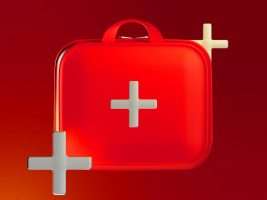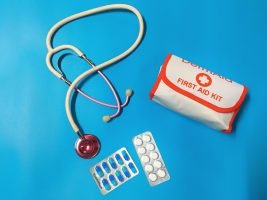Emergencies can happen at any time, and being equipped with the right knowledge could save a life. Below is a comprehensive guide to recognising and responding to four of the most common medical emergencies: heart attacks, strokes, seizures, and poisoning.
1. Heart Attack
A heart attack, medically referred to as a myocardial infarction, occurs when the flow of oxygen-rich blood to a section of the heart muscle becomes blocked. If not treated promptly, the affected heart muscle begins to die. Recognizing the signs early and taking immediate action is critical.
Common Signs and Symptoms:
- Chest Pain or Discomfort: A feeling of tightness, pressure, squeezing, or pain in the center or left side of the chest.
- Sweating: Cold, clammy perspiration that doesn’t seem related to physical activity.
- Shortness of Breath: Difficulty breathing even while resting.
- Dizziness or Lightheadedness: Feeling faint or experiencing sudden dizziness.
- Pain in Other Areas: Discomfort may spread to the arms (especially the left), jaw, back, or stomach.
What to Do:
- Keep the Person Calm and Seated: Help them sit down and stay as calm and still as possible to reduce strain on the heart.
- Call Emergency Services Immediately: Dial the local emergency number (such as 911) and provide detailed information.
- Give Aspirin If Available: If the person is not allergic and is conscious, have them chew a regular-strength aspirin. It helps thin the blood and may reduce heart damage.
- Monitor Their Condition: Be prepared to perform CPR if the person becomes unresponsive and stops breathing.
2. Stroke
A stroke occurs when the brain’s blood supply is disrupted, either by a blockage (ischemic stroke) or a burst blood vessel (hemorrhagic stroke). It is a medical emergency that requires immediate intervention.
Common Signs and Symptoms (Remember the FAST Test):
- F - Face Drooping: One side of the face may appear droopy or numb. Ask the person to smile and check for asymmetry.
- A - Arm Weakness: The person may be unable to raise one arm fully or keep it lifted.
- S - Speech Difficulty: Speech may be slurred, garbled, or completely incoherent.
- T - Time to Call Emergency Services: Time is critical. Call for medical help immediately.
What to Do:
-
- Keep the Person Calm and Still: Help them lie down with their head slightly elevated if possible.
- Do Not Give Food or Drink: They may have trouble swallowing, which increases the risk of choking.
- Call Emergency Services Without Delay: The faster the person gets medical attention, the better their chances of recovery.
- Note the Time: Try to remember when the symptoms first began to assist medical responders.
Seizures
Seizures are sudden bursts of uncontrolled electrical activity in the brain that can cause changes in behavior, movements, and consciousness. They vary in severity and duration.
During a Seizure:
- Clear the Area Around the Person: Remove sharp or dangerous objects that could cause injury.
- Do Not Restrain Them: Allow the seizure to run its course naturally. Holding the person down may cause harm.
- Do Not Put Anything in Their Mouth: This is a myth. Trying to insert an object or your fingers into their mouth can cause injury.
- Time the Seizure: Note how long it lasts.
After the Seizure:
- Check Their Breathing: Ensure the airway is clear.
- Place Them in the Recovery Position: Roll the person onto their side to prevent choking, especially if they vomit or drool.
- Stay With the Person: Stay calm and offer reassurance as they regain consciousness. They may feel disoriented or tired.
Call for Emergency Help If:
- The seizure lasts more than 5 minutes.
- Another seizure follows immediately.
- The person does not regain consciousness.
- The person is pregnant, diabetic, or injured.
4. Poisoning
Poisoning occurs when harmful substances are ingested, inhaled, absorbed through the skin, or injected into the body. It can be accidental or intentional and requires swift action.
If Poison is Ingested:
- Do Not Induce Vomiting: Unless instructed by a medical professional, do not try to make the person vomit. This could worsen the situation.
- Call Poison Control Immediately: Contact your local poison control center or emergency number. Be ready to provide details about the substance, the amount taken, and the time of ingestion.
- Monitor for Symptoms: These may include vomiting, confusion, seizures, or difficulty breathing.
If Poison is Inhaled (e.g., fumes or gases):
- Move the Person to Fresh Air Immediately: Get them out of the toxic environment to prevent further inhalation.
- Loosen Tight Clothing: This can help ease breathing.
- Administer CPR If Necessary: If the person stops breathing or becomes unresponsive, begin CPR and call for emergency help immediately.
- Do Not Re-enter the Area Until It’s Safe: Only trained personnel with proper protective gear should attempt to recover others in a toxic atmosphere.





